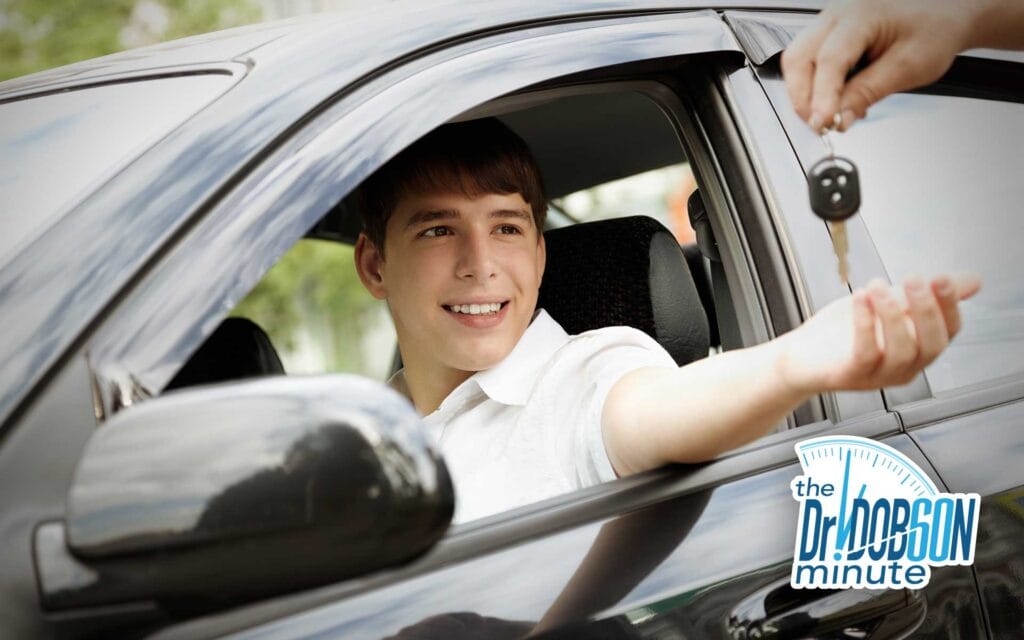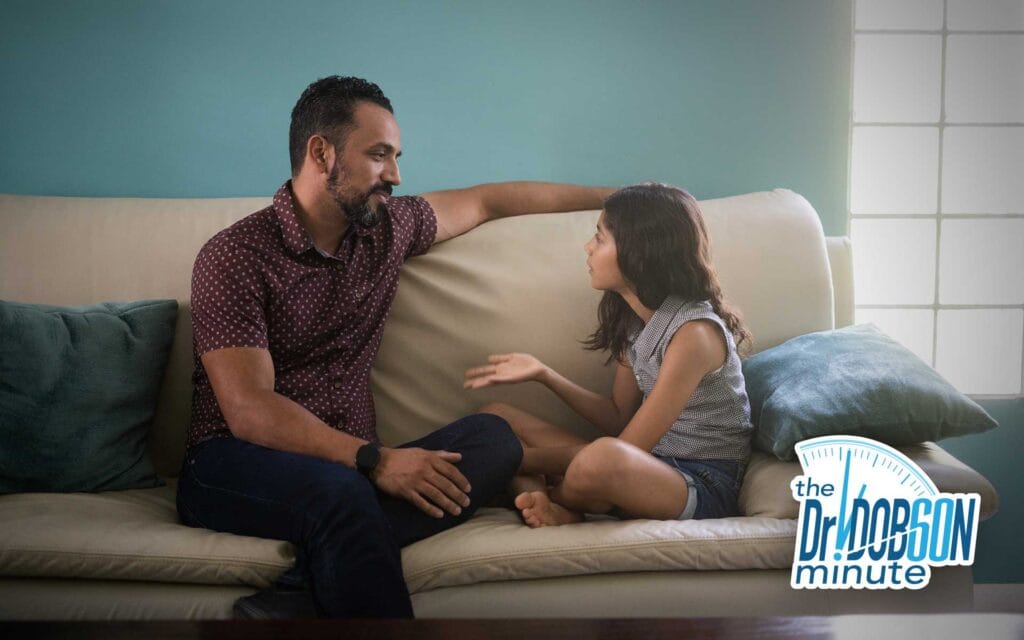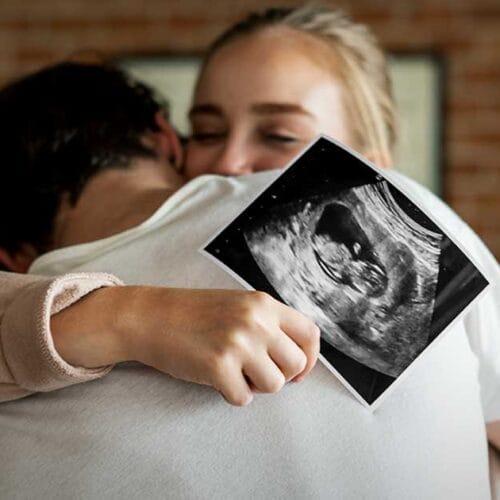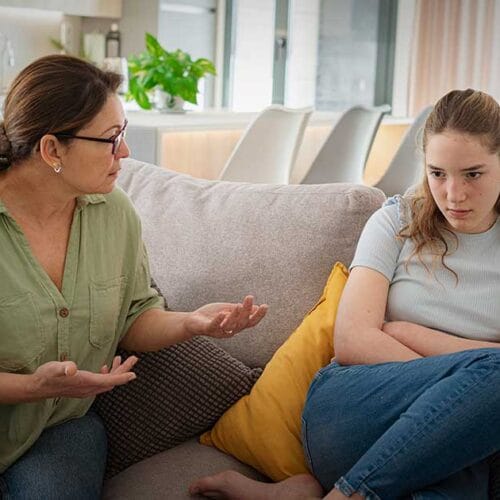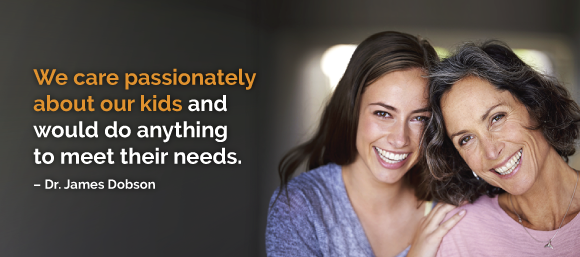
We come now to the final task assigned to mothers and fathers, that of releasing grown children and launching them into the world of adulthood. It is also one of the most difficult. Several years ago, we explored this topic by conducting another informal poll of radio listeners. I asked them to react to this question: “What are the greatest problems you face in dealing with your parents or in-laws, and how will you relate differently to your grown children than your parents have to you?” An avalanche of mail flooded my offices in the next few days, eventually totaling more than 2,600 detailed replies.
We read every letter and catalogued the responses according to broad themes. As is customary in such inquiries, the results surprised our entire staff. We fully expected in-law complaints to represent the most common category of concerns. Instead, it ranked fifth in frequency, representing only 10 percent of the letters we received. The fourth most commonly mentioned problem, at 11 percent, related to sickness, dependency, senility and other medical problems in the older generation. In third place, at 19 percent, was general concern for the spiritual welfare of un-Christian parents. The second most common reply, representing 21 percent, expressed irritation and frustration at parents who didn’t care about their children or grandchildren. They never came to visit, wouldn’t baby-sit, and seemed to follow a “me-first” philosophy.
That brings us to the top of the hit parade of problems between adults and their parents. May I have the envelope please? (Drum roll in background.) And the winner is, the inability or unwillingness of parents to release their grown children and permit them to live their own lives. An incredible 44 percent of the letters received made reference to this failure of older adults to let go. It was as though some of the writers had been waiting for years for that precise question to be asked.
Here are a few of their comments:
1. “Mother felt my leaving home was an insult to her. She couldn’t let go, couldn’t realize I needed to become an independent person, couldn’t understand that I no longer needed her physical help, although I did need her as a person. Quite unintentionally she retarded my growing up by 35 years.”
2. “One of the greatest problems is to have my parents see me as an adult, not as a child who doesn’t know the best way to do things. As a child, I played a specific role in my family. Now as an adult, I wish to change my role, but they will not allow it.”
3. “Our parents never seemed able to grasp the reality of the fact that we had grown from dependent children, to capable, responsible adults. They did not recognize or appreciate our abilities, responsibilities or contributions to the outside world.”
4. “I am 54 years old but when I visit my mother I am still not allowed to do certain things such as peel carrots, etc. because I do not do them correctly. Our relationship is still child-parent. I am still regularly corrected, criticized, put-down and constantly reminded of what terrible things I did 50 years ago. Now we are not talking about major criminal acts, just normal childish disobedience during the pre-school years. I was the youngest of five and the only daughter and I still hear, `I would rather have raised another four boys than one daughter.’ Pray for me, please. I need Jesus to help me forgive and forget.”
We received literally hundreds of letters expressing this general concern. The writers wanted desperately to be free, to be granted adult status, and especially, to be respected by their parents. At the same time, they were saying to them, “I still love you. I still need you. I still want you as my friend. But I no longer need you as the authority in my life.”
I remember going through a similar era in my own life. My parents handled me wisely in those years and it was rare to have them stumble into common parental mistakes. However, we had been a very close-knit family and it was difficult for my mother to shift gears when I graduated from high school. During that summer, I traveled 1,500 miles from home and entered a college in California. I will never forget the exhilarating feeling of freedom that swept over me that fall. It was not that I wanted to do anything evil or previously forbidden. It was simply that I felt accountable for my own life and did not have to explain my actions to my parents. It was like a fresh, cool breeze on a spring morning. Young adults who have not been properly trained for that moment sometimes go berserk in the absence of authority, but I did not. I did, however, quickly become addicted to that freedom and was not inclined to give it up.
The following December, my parents and I met for Christmas vacation at the home of some relatives. Suddenly, I found myself in conflict with my mom. She was responding as she had six months earlier when I was still in high school. By then, I had journeyed far down the path toward adulthood. She was asking me what time I would be coming in at night, and urging me to drive the car safely, and watching what I ate. No offense was intended, mind you. My mother had just failed to notice that I had changed and she needed to get with the new program, herself.
Finally, there was a brief flurry of words between us and I left the house in a huff. A friend picked me up and I talked about my feelings as we rode in the car. “Darn it, Bill!” I said. “I don’t need a mother anymore!”
Then a wave of guilt swept over me, as though I had said, “I don’t love my mother anymore.” I meant no such thing. What I was feeling was the desire to be friends with my parents instead of accepting a line of authority from them. My wish was granted by my mom and dad very quickly thereafter.
Most parents in our society do not take the hint so easily. I’m convinced that mothers and fathers in North America are among the very best in the world. We care passionately about our kids and would do anything to meet their needs. But we are among the worst when it comes to letting go of our grown sons and daughters. In fact, those two characteristics are linked. The same commitment that leads us to do so well when the children are small (dedication, love, concern, involvement), also causes us to hold on too tightly when they are growing up. I will admit to my own difficulties in this area. I understood the importance of turning loose before our kids were born. I wrote extensively on the subject when they were still young. I prepared a film series in which all the right principles were expressed. But when it came time to open my hand and let the birds fly, I struggled mightily!
Why? Well, fear played a role in my reluctance. We live in Los Angeles where weird things are done by strange people every day of the year. For example, our daughter was held at gunpoint on the campus of the University of Southern California late one night. Her assailant admonished Danae not to move or make a noise. She figured her chances of survival were better by defying him right then than by cooperating. She fled. The man did not shoot at her, thank God. Who knows what he had in mind for her?
A few days later, my son was walking his bicycle across a busy road near our home when a man in a sportscar came around the curve at high speed. Skid marks later showed he was traveling in excess of 80 miles per hour. Ryan saw that he was going to be hit, and he jumped over the handlebars and attempted to crawl to safety. The car was fishtailing wildly and careening toward our son. It came to a stop just inches from his head, and then the driver sped off without getting out. Perhaps he was on PCP or cocaine. Thousands of addicts live here in Los Angeles, and innocent people are victimized by them every day.
Such near-misses make me want to gather my children around me and never let them experience risk again. Of course, that is impossible and would be unwise even if they submitted to it. Life itself is a risk, and parents must let their kids face reasonable jeopardy on their own. Nevertheless, when Danae or Ryan leave in the car, I’m still tempted to say, “Be sure to keep the shiny side up and the rubber side down!”
What are your reasons for restricting the freedom of your grown or nearly grown children? In some cases, if we’re honest, we need them too much to let them go. They have become an extension of ourselves, and our egos are inextricably linked to theirs. Therefore, we not only seek to hold them to us, but we manipulate them to maintain our control. We use guilt, bribery, threats, intimidation, fear and anger to restrict their freedom. And sadly, when we win at this game, we and our offspring are destined to lose.
From Dr. Dobson’s book Parenting Isn’t For Cowards.
Request your copy today HERE.




